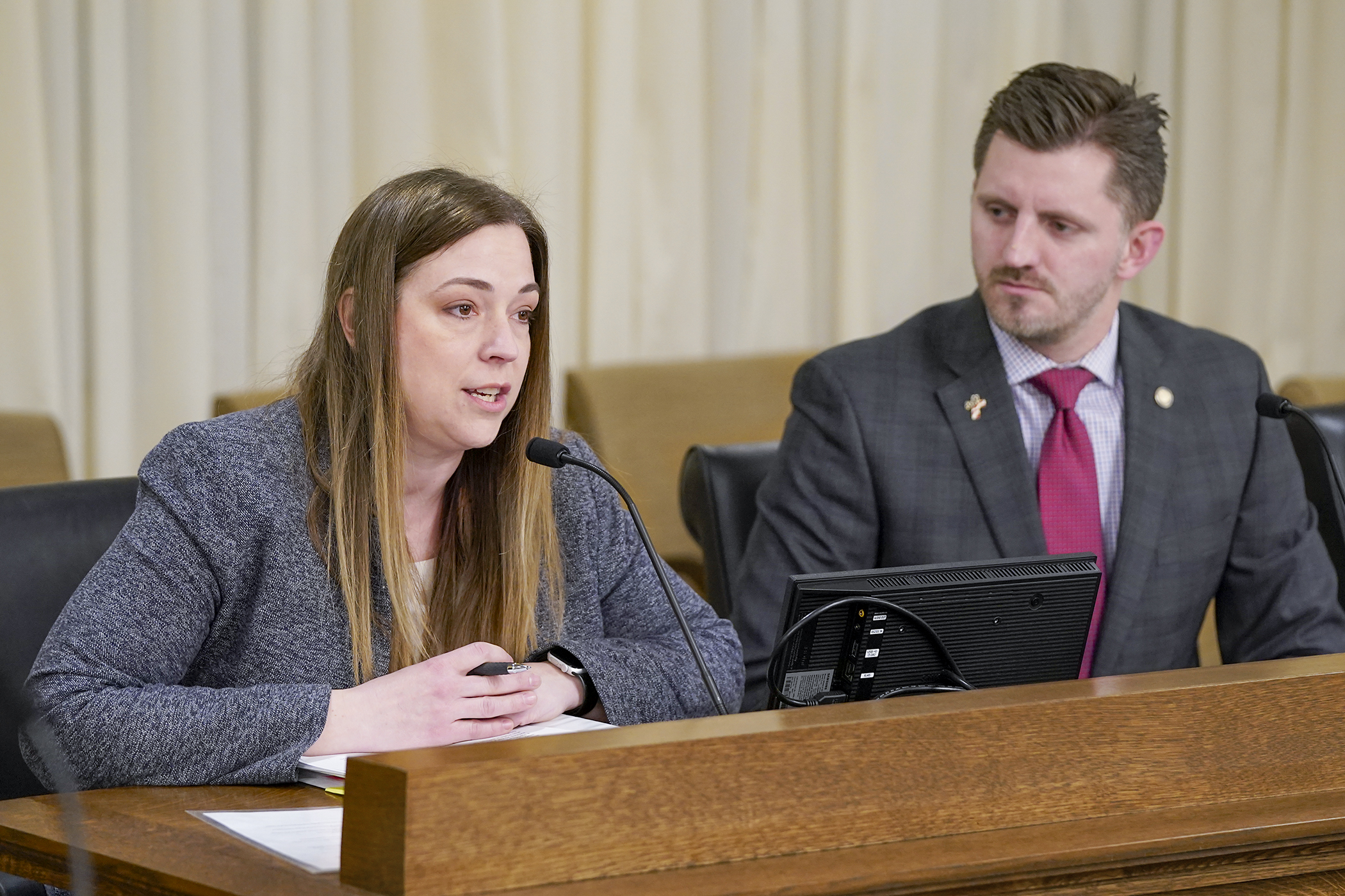House committee debates proposed changes to earned sick and safe time law

Earned safe and sick time allows workers to earn one hour of paid time off for every 30 hours worked, up to 48 hours per year. Time away can be used for certain reasons, including illness, to care for a sick family member, or to seek assistance if an employee or their family member has experienced domestic abuse, sexual assault or stalking.
Rep. Isaac Schultz (R-Elmdale Township) believes Minnesota’s law, enacted in 2023, is unworkable for too many employers, results in higher property taxes and overburdens small businesses who could choose to locate elsewhere.
Seeking to make the program more flexible, Schultz sponsors HF1325 that he says would make commonsense changes to the program and benefit Minnesota for years to come. It was laid over as amended by the House Workforce, Labor, and Economic Development Finance and Policy Committee Wednesday.
Among the changes are those that would:
- exempt those covered to exclude workers under age 18, part-timers who work fewer than 25 hours per week, 20 weeks per year, or 520 hours per year;
- exempt those working per diem or who opt into a job, such as a substitute teacher;
- compensate employees of organizations of 25 or fewer employees at half their normal rate while they are out, and businesses would not be required to pay sick and safe time during their first year of operation;
- offer a narrower definition of family, excluding adult children, nieces, nephews, aunts, uncles and in-laws; and
- accrue earned sick and safe time at one hour for every 40 hours worked.
Labor and Industry Commissioner Nicole Blissenbach expressed many concerns about the proposal, saying it would eliminate protections for about 800,000 workers. It would also make it challenging for workers to know their rights because the number of employees in a business can surge and fall.
Other opponents noted that many part-time workers have multiple jobs and could be ineligible for benefits despite working 50 or more hours per week.
Brian Elliott, executive director of the Service Employees International Union’s Minnesota State Council, said the proposed legislation would undermine the most important principle of earned sick and safe time: “No one should be fired, or risk being unable to feed themselves or their family because of a short-term illness. That’s what we’re talking about — six days a year.”
Rep. Dave Pinto (DFL-St. Paul) said he will have conversations about the law to ensure it most effectively supports that principle. “But to the extent that we're backing off and treating human beings differently based on who they are or who they work for that is a real problem for me,” he said.
Related Articles
Search Session Daily
Advanced Search OptionsPriority Dailies
Stable budget outlook projects $3.7 billion surplus now, no deficit in next biennium
By Lisa Kaczke The projected surplus for Fiscal Years 2026-27 is now higher than it was in the November estimate, and no deficit is projected for the next biennium.
“Minnesota’s budge...
The projected surplus for Fiscal Years 2026-27 is now higher than it was in the November estimate, and no deficit is projected for the next biennium.
“Minnesota’s budge...
Legislative leaders set 2026 committee deadlines
By Lisa Kaczke Legislative leaders on Tuesday officially set the timeline for getting bills through the committee process during the upcoming 2026 session.
Here are the three deadlines for...
Legislative leaders on Tuesday officially set the timeline for getting bills through the committee process during the upcoming 2026 session.
Here are the three deadlines for...